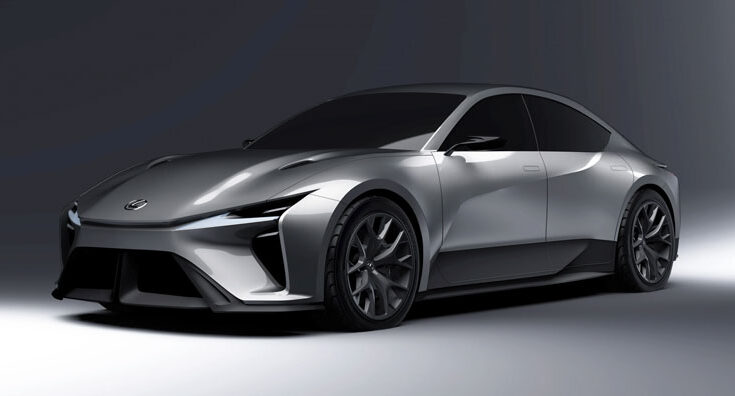As environmental concerns intensify and technology advances, the automotive industry is rapidly transitioning toward electric vehicles (EVs). This shift represents a significant opportunity for consumers to invest in the future of sustainable transportation. But should electric cars be your next automotive investment? This post delves into the benefits of electric vehicles, key considerations when making the switch, and spotlights two notable models: the BYD Dolphin and the Atto 3 car.
The Rise of Electric Vehicles
Environmental Benefits
Electric cars offer substantial environmental advantages over traditional internal combustion engine (ICE) vehicles.
Reduced Emissions: EVs produce zero tailpipe emissions, significantly lowering greenhouse gas emissions and improving air quality.
Sustainable Energy: When charged with renewable energy sources like solar or wind power, EVs become even more environmentally friendly, contributing to a reduction in fossil fuel dependency.
Technological Advancements
Technological progress has made electric vehicles more viable and attractive to consumers.
Battery Improvements: Advances in battery technology have increased driving ranges and reduced charging times. For example, the BYD Dolphin features a high-capacity battery that supports long-distance travel on a single charge.
Infrastructure Expansion: The expansion of charging infrastructure, including public charging stations and home chargers, has alleviated concerns about range anxiety, making EV ownership more convenient.
Financial Considerations
Cost Efficiency
While the initial cost of electric cars can be higher than ICE vehicles, they often prove more economical in the long run.
Lower Operating Costs: EVs have fewer moving parts, resulting in lower maintenance costs. There’s no need for oil changes, and wear on brakes is reduced due to regenerative braking systems.
Fuel Savings: Electricity is generally cheaper than gasoline or diesel, translating to significant savings on fuel costs over time.
Incentives: Many governments offer incentives such as tax credits, rebates, and reduced registration fees for EV buyers, further offsetting the initial purchase price.
Resale Value
Electric vehicles are increasingly retaining their value as technology improves and consumer demand grows. Models like the Atto 3 car, known for their robust range and performance, tend to maintain a higher resale value compared to older, less efficient EVs.
Performance and Driving Experience
Enhanced Driving Experience
Electric cars provide a unique and enjoyable driving experience.
Instant Torque: EVs deliver full torque immediately, resulting in swift acceleration and a responsive driving experience. The Atto 3 car is particularly noted for its impressive performance and smooth handling.
Quiet Operation: The near-silent operation of electric vehicles offers a serene and pleasant ride, free from the noise and vibration associated with ICE vehicles.
Low Center of Gravity: The placement of the battery pack in the floor of the vehicle provides a low centre of gravity, improving stability and handling.
Range and Charging
Modern electric vehicles offer competitive ranges and convenient charging solutions.
BYD Dolphin: This model is equipped with an efficient battery management system that maximize range, making it suitable for both city driving and longer journeys.
Atto 3 Car: Known for its long range and fast charging capabilities, the Atto 3 car can handle extended trips with minimal charging interruptions. It supports rapid charging, allowing you to recharge a significant portion of the battery in a short time.
The Future of Sustainable Transportation
Innovations and Trends
The future of electric vehicles looks promising, with several innovations set to enhance their appeal.
Autonomous Driving: Many automakers are integrating autonomous driving features into their electric models, enhancing safety and convenience.
Vehicle-to-Grid (V2G) Technology: This technology enables EVs to interact with the power grid, allowing them to store and supply electricity. It can help stabilise the grid and provide backup power during outages.
Sustainable Manufacturing: Automakers are increasingly using sustainable materials and eco-friendly manufacturing processes, further reducing the environmental impact of EV production.
Government Support
Governments worldwide are promoting the adoption of electric vehicles through various measures.
Regulations: Stricter emissions regulations are pushing automakers to produce more EVs and fewer ICE vehicles.
Incentives: Financial incentives, such as tax rebates and subsidies, make EVs more affordable for consumers.
Infrastructure Investment: Significant investments are being made to expand the charging infrastructure, ensuring that EV owners have access to convenient and reliable charging options.
Conclusion
Electric cars represent a significant step forward in the pursuit of sustainable transportation. With their environmental benefits, cost efficiencies, and advanced technology, EVs offer a compelling case for becoming your next automotive investment. Models like the BYD Dolphin and Atto 3 car exemplify the strides made in the EV market, providing practical, efficient, and enjoyable driving experiences.
As the world moves towards a more sustainable future, investing in an electric vehicle not only makes financial sense but also aligns with a commitment to environmental stewardship. By considering your driving habits, lifestyle, and the growing support for EV infrastructure, you can make an informed decision about whether an electric car is right for you. Embrace the future of transportation and contribute to a greener planet with your next vehicle choice.











